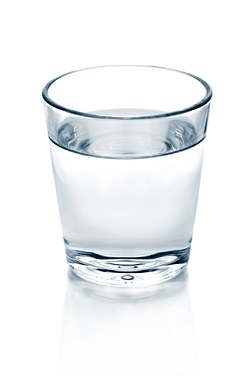Ask the Nurse: Stay Hydrated – Stay Healthy
Water is an essential part of a healthy and balanced diet, without it our body cannot function to it’s full capability. The amount of water we need varies from person to person however dehydration can affect anyone- no matter their age or medical history. Dehydration is more prevalent in warm weather, due to the loss of water and salt from the body. Dehydration can occur when a person’s body temperature rises and the body tries to cool itself down by sweating.
Continue reading to learn more about the importance of water intake, and our simple tips for staying hydrated.

Why do we need to drink water to prevent dehydration?
Our bodies comprise of 70 to 75 per cent of water, which is responsible for maintaining blood circulation as well as supplying our bodies with essential nutrients and removing waste.
Drinking water also maintains blood volume and ensures our blood pressure is maintained.
What’s next?
Should you require the addition of vitamins or supplements to your diet, you can shop a full range of supplements here.
How do I know if I’m dehydrated?
The most common symptoms of dehydration are a dry mouth and feeling thirsty. Other symptoms include:
- headache
- dry skin
- passing less urine than normal
- dry skin
- tiredness
- dizziness
- cramping in the arms and legs
If these symptoms worsen or last for more than an hour, immediate medical attention is highly advised.
Helpful hints to prevent dehydration
Ensure your staying hydrated during the warmer months by following these tips:
- Pay attention to the colour of your urine as this is a good way to monitor fluid loss. Your urine should be pale yellow and not dark yellow, too smelly or cloudy
- Consuming fruits and vegetables (at least five cups) counts towards your fluid levels, as they contain water and potassium.
- Fluids found in foods (icy poles, custard, jelly, ice cream, yogurt, fruit and soup) as well as fruit juice, milk, tea, coffee and cordial all contribute to the daily intake.
- Tea and coffee, while being a good source of fluid, should not be the only fluid a person drinks because they contain caffeine
- Avoid fizzy drinks or caffeine-based drinks, which can trigger urge incontinence in some people with bladder dysfunction.
- Sip on water before, during and after exercise for low to moderate activity (less than 60 minutes)
- Do exercise or outdoor activities in the early morning or evening to avoid excessive exposure to the midday sun
- Wear Sunscreen and a hat to protect your head, neck, ears and face to avoid getting sunburn which stops your body from cooling itself down properly
- Wear thin, loose clothing to help sweat evaporate. Avoid wearing dark clothes which absorb more heat than light clothing.
- For more health advice, check out Independence Australia’s health articles here
More health advice
View our wide range of health advice, tips and recommendations by visiting our health articles or checking out our top health articles below.
Vitamin D: A practical guide
One of the most important vitamins that our body needs to stay healthy is vitamin D. What’s even better is that it’s available for free from the sun!
Maintaining Healthy Bowel Habits
However, many people experience great difficulty passing a bowel motion and spend a lot of time sitting on the toilet with a very unsatisfactory result.
Understanding Constipation & Laxatives
The slower the food passes through the digestive tract, the more water will absorb into your colon. This results in less water in your stool.
